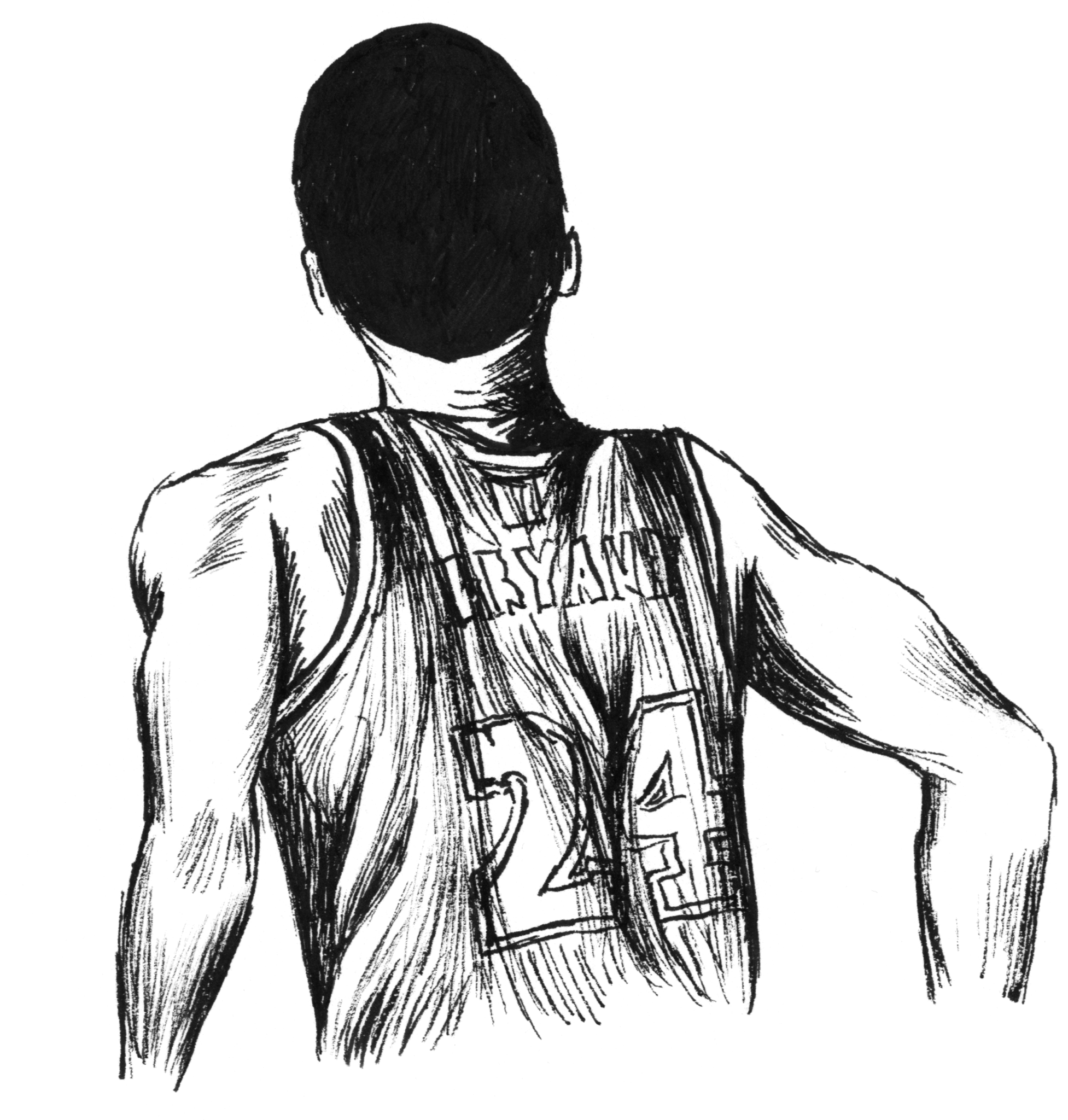
Claire Mutchnik
My heart fluttered. Time slowed. For the first time, I could not fathom a tragic headline plastered all over Twitter: “Kobe Bryant has died in a helicopter crash.”
I had villainized Kobe Bryant. It was not until his death that I realized my disdain for him was rooted in the very things I struggled within myself — uncontrollable passion and fiercely competitive desire. These revelations endeared Kobe to me. It was also impossible to ignore my obsession with basketball, and Kobe’s place in it. It was by imitating Kobe’s signature fadeaway jump shot during pickup basketball that I connected with some of the best friends I have ever made. These were the reasons why Kobe’s passing moved me. And it resonated with others, too: Fans across the world mourned the death of a legend who invigorated the game of basketball, personified unbridled competitive spirit and embodied the heights you could reach with hard work.
But amidst the mourning, Kobe couldn’t escape his past: In 2003, he was charged with sexually assaulting a 19-year-old hotel employee. Washington Post reporter Felicia Sonmez was one of multiple people who directed attention to the incident immediately after news broke of Kobe’s death. Their actions sparked vast discussion on how to treat the deaths and legacies of public figures.
Kobe Bryant’s death reminds us that we, those still living, are responsible for sharing the totality of a figure’s history. When remembering Kobe Bryant for all that he was, we can’t view him solely as a basketball icon, nor can we define him by the lowest point of his life. We need to share the full picture — not selectively pick moments with the intent of idolizing or demonizing him. For all who looked up to Kobe, this is a complicated struggle. We hate to see our idols fall. But the reality is that the portrait of Kobe Bryant that includes his flaws does not tarnish his legacy. Instead, it’s truthful — even empowering.
Kobe’s stature as a beloved athlete does not discount the fact that he must be held accountable for his past. Esteem should not affect how we assess the morality of actions. Imagine other people in Kobe’s position — accused of sexual assault — who are not at his level of status. How might we view them? An act is wrong, regardless of who commits it. We cannot brush over this part of Kobe’s past simply because he is a basketball legend.
But it is equally important to consider how people can grow from their mistakes. At the time of the 2003 allegations, Kobe also admitted that he had cheated on his wife with another woman. The situation shattered his public image and threatened to destroy his family. Bryant, a lifelong Catholic, turned to his faith, released a public apology and worked to make amends with his wife. It was from this stage forward in his life that Kobe reconstructed himself. He reached out to his community and continued to take responsibility for — and correct — his shortcomings. By the time of his death, he was writing children’s books aimed to inspire underprivileged children, coaching his daughter’s basketball team and supporting youth sports programs in his community.
Kobe’s greatness on the basketball court is known universally. Yet, it is all his complicated sides — his assault allegations, his adultery and his personal development and contributions in the years that followed — that should define his legacy.
Kobe is not a perfect role model. As the most passionate basketball fan, it is difficult for me to accept that idea because so often we think one’s bad actions preclude their good. But it’s something everyone who admires him has to reckon with. The discomfort from Kobe’s alleged assault and admission of adultery is unavoidable; they fracture our idyllic perception of him.
Many athletes and fans avoid discussing the 2003 allegations and their place in Kobe’s life. But while ignoring his past is a common response, it is wrong. When we evaluate him as a man, basketball icon is an insufficient description. Kobe was more than an athlete, just as we are all more than just students or employees. Measures that try to purify Kobe’s legacy of any blemishes are not only unjust, but also unnecessary. The fuller picture in its peaks and troughs brings us to a better, more accurate view.
I recognize Kobe’s flaws as well as his response to them, and my respect for him develops in a new way. The full arc of Kobe’s personal growth grounds my admiration for him in a more authentic light.
Kobe’s legacy won’t be soiled. People will continue to look up to him for his place in the history of basketball, his significance to Los Angeles and his growth as a father. But we are responsible for sharing the totality of Kobe’s history.
Our icons are not invincible. They may be boundlessly inspiring, but they are also flawed.
EDWARD SEOL is a first year in Berkeley College. His column runs on alternate Mondays. Contact him at edward.seol@yale.edu







